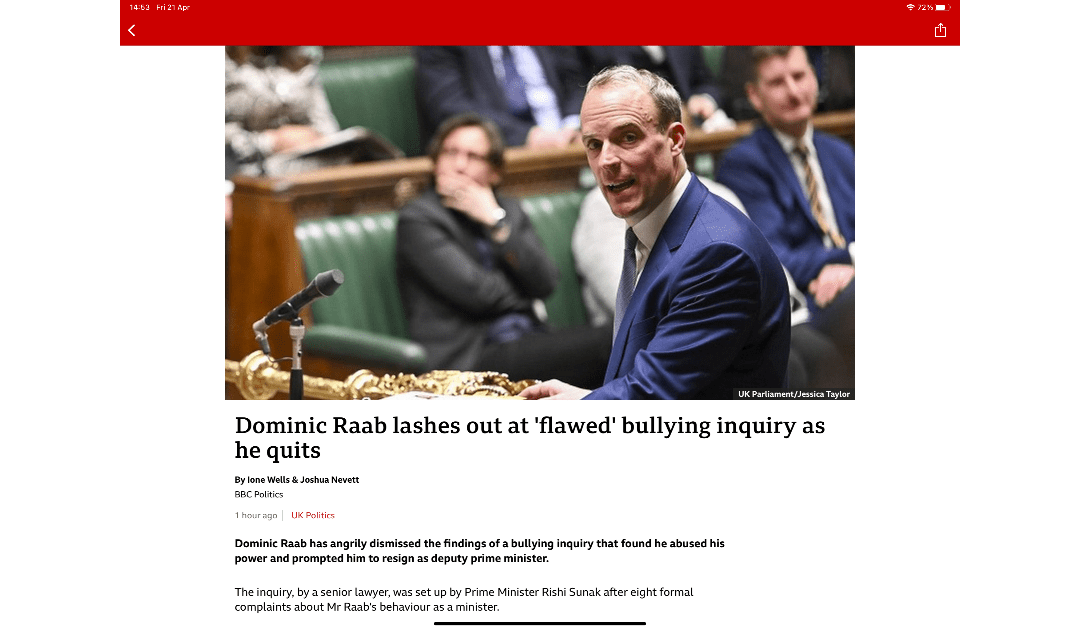Dominic Raab has been found to have engaged in bullying as a minister and has resigned. He seems to have some issues with the definition of bullying. As a writer, I always reach for the Oxford English Dictionary when a definition is required. The OED says that a bully is a person who habitually seeks to harm or intimidate those whom they perceive as vulnerable.
The least enjoyable part of my working life as a civil engineer and project manager was working on the parliamentary estate. A brief spell working in the Department for Transport comes a close second. It seems to me that the closer you get to parliament, the more prevalent bullying becomes.
In my opinion it’s hard wired into the building. The benches face each other, and the front benches are set two and a half sword-lengths apart. I’m not convinced that televising parliament is a good thing. When they know the cameras are on them, they need to be seen to be winning. In a few seconds of prime time TV, winning may feel like shouting the loudest. It takes more than a soundbite to conduct a reasoned debate.
There are a number of definitions of bully in the OED. The second is a North American one, which is very good or excellent, as in – the statue looked really bully. The origin of bully is late 16th century (smack bang in Sir Anthony Standen’s time) used in referring to a person and meaning – admirable, gallant, jolly. The current definition dates from the mid 19th century.
I have some advice for those who try to achieve their ends through excessive negative feedback. People will change their behaviour slightly to avoid negative feedback, but nobody can get enough praise. People will do whatever you want to get your praise. If you have negative feedback to get across, sandwich it between praise for the bits you did like. It achieves better results.

